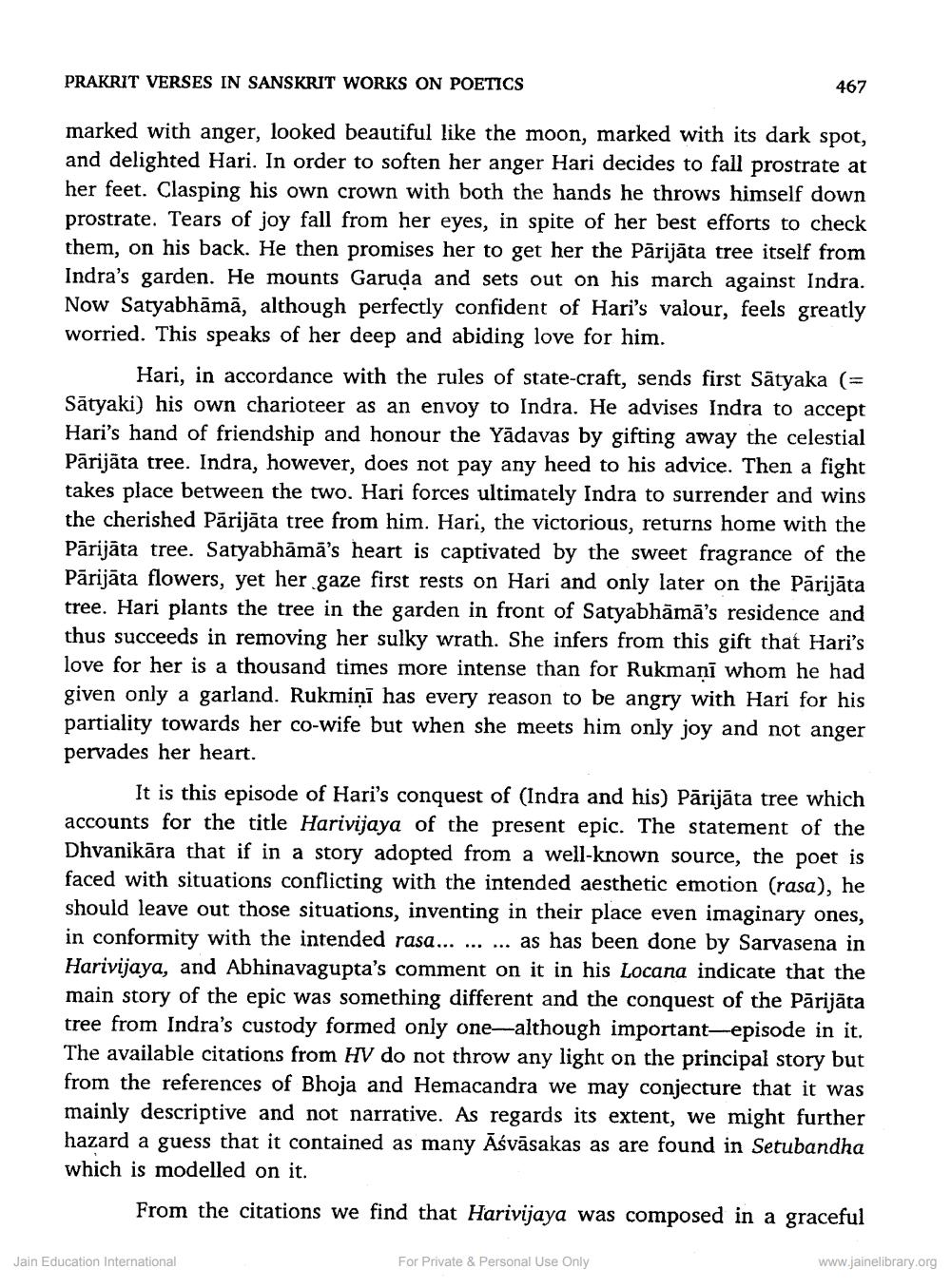________________ PRAKRIT VERSES IN SANSKRIT WORKS ON POETICS 467 marked with anger, looked beautiful like the moon, marked with its dark spot, and delighted Hari. In order to soften her anger Hari decides to fall prostrate at her feet. Clasping his own crown with both the hands he throws himself down prostrate. Tears of joy fall from her eyes, in spite of her best efforts to check them, on his back. He then promises her to get her the Parijata tree itself from Indra's garden. He mounts Garuda and sets out on his march against Indra. Now Satyabhama, although perfectly confident of Hari's valour, feels greatly worried. This speaks of her deep and abiding love for him. Hari, in accordance with the rules of state-craft, sends first Satyaka (= Satyaki) his own charioteer as an envoy to Indra. He advises Indra to accept Hari's hand of friendship and honour the Yadavas by gifting away the celestial Parijata tree. Indra, however, does not pay any heed to his advice. Then a fight takes place between the two. Hari forces ultimately Indra to surrender and wins the cherished Parijata tree from him. Hari, the victorious, returns home with the Parijata tree. Satyabhama's heart is captivated by the sweet fragrance of the Parijata flowers, yet her gaze first rests on Hari and only later on the Parijata tree. Hari plants the tree in the garden in front of Satyabhama's residence and thus succeeds in removing her sulky wrath. She infers from this gift that Hari's love for her is a thousand times more intense than for Rukmani whom he had given only a garland. Rukmini has every reason to be angry with Hari for his partiality towards her co-wife but when she meets him only joy and not anger pervades her heart. It is this episode of Hari's conquest of (Indra and his) Parijata tree which accounts for the title Harivijaya of the present epic. The statement of the Dhvanikara that if in a story adopted from a well-known source, the poet is faced with situations conflicting with the intended aesthetic emotion (rasa), he should leave out those situations, inventing in their place even imaginary ones, in conformity with the intended rasa... ... ... as has been done by Sarvasena in Harivijaya, and Abhinavagupta's comment on it in his Locana indicate that the main story of the epic was something different and the conquest of the Parijata tree from Indra's custody formed only one-although important-episode in it. The available citations from HV do not throw any light on the principal story but from the references of Bhoja and Hemacandra we may conjecture that it was mainly descriptive and not narrative. As regards its extent, we might further hazard a guess that it contained as many Asvasakas as are found in Setubandha which is modelled on it. From the citations we find that Harivijaya was composed in a graceful Jain Education International For Private & Personal Use Only www.jainelibrary.org




